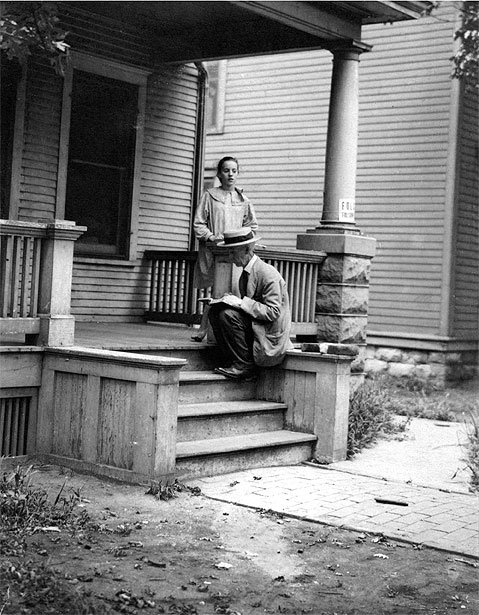In 1880 Omaha’s notorious third ward included the heart of the city’s gambling and prostitution. The character of the district created unique problems for federal census takers. A representative of the Omaha Daily Bee on June 8, 1880, reported the recent canvass of this section of the city “not particularly famous as the abode of refinement and intelligence” and discussed the difficulties faced by one census worker.
The Bee said: “The enumerator told our reporter that he was much impeded by the deplorable obtuseness of many people he had occasion to question. ‘I have,’ said he, ‘oftentimes much trouble in making them understand the nature and necessity of a census. They are very suspicious, and imagine that I am an informer of some kind, in the employ of the police, or, at best, an agent of some sort. I meet with many abusive people, and am frequently insulted and loaded with epithets of no flattering nature. I am obliged to be on hand early in the morning, and have much trouble in rousing some people from their early slumbers, and you may imagine that they are in no very pleasant humor when thus disturbed, and the door is slammed in my face with a curse for being a peddler, disturbing decent people at that hour of the day! Oftentimes I meet with people who do not know the place of their nativity nor their ages.
“‘Yes,’ he replied in answer to an inquiry of our reporter, ‘there are in my district a number of houses of questionable repute, and the inmates often try, in various ways, to evade my questions, or answer me in an equivocal manner but a reading of the penalty provided for those who refuse to make correct statements generally brings them to time. Of course it is to be presumed that even then many of their answers will be mere fabrications, originating in their own imaginations. Their occupations? They are all dressmakers.”
“In answer to a question regarding the mortality and general health of the ward, he said: ‘During the first three days I took between 400 and 500 names, and failed to hear of a single case of death during the present year. I found considerable dirt, but strange to say, no case of sickness.'”
The enumerator himself in a July 14 letter to the Bee expressed his “relief and gratification” that the 1880 census of Omaha was at last finished. “He is led to exclaim in the same strain as did the young lady who had finished her education, ‘My duties are at last finished! What a thankless and miserable job I have had! What an ordeal I have just passed through! The only wonder is that I have lived through it all and preserved my senses (census) and young appearance.'”

A census taker canvassed this Lincoln neighborhood in 1910. NSHS RG0716-45-1



